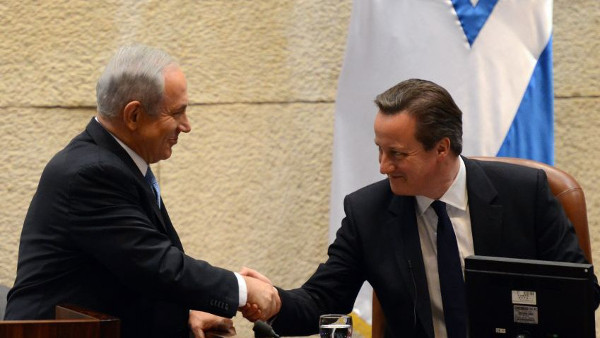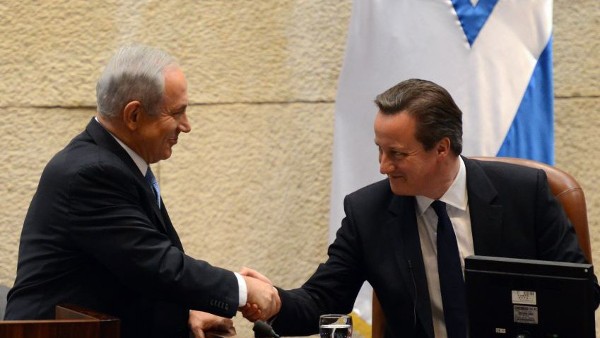
By: Sarah Irving
Source: The Electronic Intifada
A recent British government report attempts to smear the Palestinian call for a boycott of Israeli academic institutions as “anti-Jewish”.
The document was published by the Department for Communities and Local Government on 28 December. As many people in Britain were on Christmas holidays at that time, the decision to release the report on a day it would not be widely-noticed is a curious one.
The report includes a list of supposed “government action on addressing anti-Semitism.”
However, closer examination reveals that the report conflates anti-Semitism with criticism of the State of Israel. It also misrepresents a 2004 call made by various Palestinian organizations for an academic boycott of Israel.
In one section, the report uses the following wording:
Calls to boycott contact with academics working in Israel are an assault on academic freedom and intellectual exchange. We recommend that pro-democracy lecturers in the new University and College Lecturers Union are given every support to combat such selective boycotts that are anti-Jewish in practice. We would urge the new union’s executive and leadership to oppose the boycott.
The genuine Palestinian statement on academic boycott, however, makes it clear that individual Israeli academics are not the target of the boycott call. Rather, the boycott targets Israeli academic institutions. Guidelines issued by the Palestinian Campaign for the Academic and Cultural Boycott of Israel (PACBI), state:
Anchored in precepts of international law and universal human rights, the BDS [boycott, divestment and sanctions] movement, including PACBI, rejects on principle boycotts of individuals based on their identity (such as citizenship, race, gender, or religion) or opinion. If, however, an individual is representing the State of Israel or a complicit Israeli institution (such as a dean, rector, or president), or is commissioned/recruited to participate in Israel’s efforts to “rebrand” itself, then her/his activities are subject to the institutional boycott the BDS movement is calling for.
It is also worth noting that many BDS advocates signed a 2012 letter against all forms of racism and bigotry. That letter opposes “the cynical and baseless use of the term anti-Semitism as a tool for stifling criticism of Israel or opposition to Zionism, as this assumes simply because someone is Jewish, they support Zionism or the the colonial and apartheid policies of the State of Israel, a false generalization.”
Smearing solidarity
Other problematic aspects of the government report include the portrayal of sympathy and solidarity with Palestinian victims of the Israeli war machine by local authorities in Britain as somehow equating to anti-Semitism, as seen in statements such as: “This year we also saw councils misjudging their remits, with Leicester City Council, banning Israeli-manufactured products, and Tower Hamlets flying the Palestinian flag.”
In portraying Palestine solidarity as anti-Semitic, the report hews to the line held by the State of Israel, which attempts to claim a representative role in respect of the global Jewish population. In reality, of course, many Jews around the world either have little interest in or reject Israel’s acts.
Claiming that actions such as the flying of the Palestinian flag by the London borough of Tower Hamlets and by other councils in Britain are associated with anti-Semitism obscures and cheapens the existence of a genuine problem of anti-Semitism in many parts of Europe.
The Department of Communities, however, seems determined to repeat and uphold inaccurate versions of the boycott call, and to defend the actions of the State of Israel as somehow representative of all British Jews. The question, of course, is why?
The answer quickly becomes apparent when one looks at the British government’s choice of advisors on the subject of anti-Semitism.
Prominent amongst these is the Community Security Trust (CST), a “charity” which purports to monitor anti-Semitism.
In one of a number of citations of information from the CST, the report describes it as “an organization that looks after the safety and security needs of the Jewish community.” Other researchers, though, would less worthwhile activities to this benign description.
Political cover for Israel
Antony Lerman — a genuine expert on the problem of anti-Semitism and anti-Jewish violence in Europe — has strongly criticized the CST for its conflation of anti-Semitism with any moves to question the behavior of the State of Israel.
Lerman accused the CST in 2014 of “abusing its mandate” by going beyond its proper — and entirely legitimate — role of ensuring the safety of Britain’s Jewish community, and instead choosing to defend indefensible acts such as the mass killing of civilians in Gaza.
Lerman went on to say of the CST that its acts in “providing political cover for Israel in this way takes the CST into the realm of partisan political action that hardly seems compatible with its charitable status.”
He also suggested that the CST was “muddy[ing] the waters when they seem to be encouraging hysteria and feeding paranoia” through the organization’s claims that anti-Israeli protests during the summer 2014 onslaught on Gaza constituted, first and foremost, a wave of anti-Semitism.
Broader examples of the CST exceeding its remit, going well beyond simply defending British Jews and instead working on behalf of the State of Israel, include the CST’s involvement in anti-BDS campaigning.
And when the British legal system rejected claims that discussing the academic boycott of Israel constitutes anti-Semitism in 2013, the CST resorted to cheap insults, with Mark Gardner, the organization’s director of communications, referring to senior judges sitting on an employment tribunal as “sneering bastards.”
Other CST shenanigans include its role in plotting with the British government to keep Sheikh Raed Salah, a leader of the Palestinian community within Israel, out of the UK. That role included providing the British authorities with doctored or intentionally mistranslated evidence against Salah, and attempting to smear British Jews who opposed Zionism.
And, lest the CST’s Jesuitical approach to the truth need any more evidence, there is the organization’s acceptance of funding from Richard Desmond. A British media magnate, Desmond is not only the owner of a string of pornography magazines, but also of the Daily Express, a newspaper with a history of anti-Semitim, as well as many other forms of racism.
The CST enjoys a cozy relationship with the British establishment. David Cameron, the prime minister, has been known to speak at its events. Its malign role in enforcing Israel-friendly ideas is very much par for the course.




